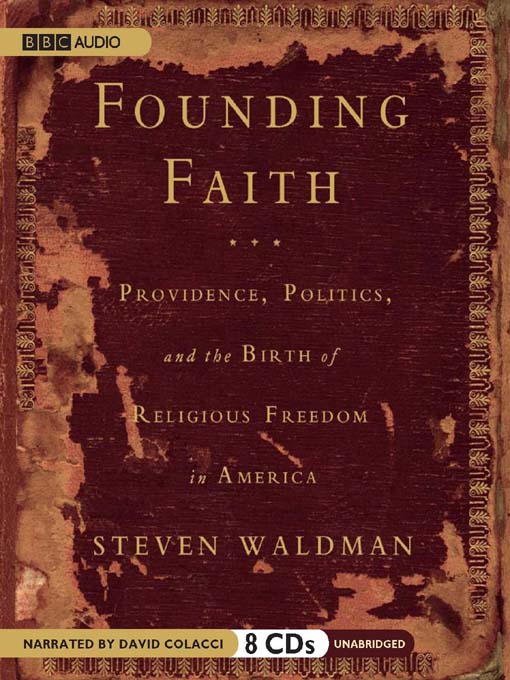
Founding Faith
Providence, Politics, and the Birth of Religious Freedom in America
کتاب های مرتبط
- اطلاعات
- نقد و بررسی
- دیدگاه کاربران
نقد و بررسی

Were our Founding Fathers men of faith? What would they have thought about today's battles over religious freedom? In an attempt to answer these questions, Waldman, cofounder and editor of Beliefnet, looks back at religious regulation and persecution in early American settlements and the beliefs of leaders such as Thomas Jefferson, Benjamin Franklin, and James Madison. David Colacci keeps his reading lively throughout Waldman's analysis of the arguments and decisions that shaped the nation's policies toward religion. Although this work is mostly focused on history, Waldman's optimistic view of our religious freedoms is present throughout, as are his criticisms of both sides of the culture wars. His portraits of the men who made our nation and their faith are fascinating listening. J.A.S. (c) AudioFile 2008, Portland, Maine

Starred review from January 28, 2008
Various American evangelicals have claimed the founding fathers as believing and practicing Protestants who intended America to be a Christian nation. Secularists, on the other hand, see in the same historical record evidence that the founders were often Deists at best. Both views are grossly oversimplified, argues Waldman, cofounder and editor-in-chief of Beliefnet.com. In this engaging, well-researched study, Waldman focuses on the five founding fathers who had the most influence on religion's role in the state—Franklin, Jefferson, Washington, Adams and Madison—and untangles their complex legacy. They were certainly diverse in religiosity, with Jefferson a self-diagnosed heretic, for instance, and Washington a churchgoing Anglican who was silent on points of doctrine and refrained from taking communion. All, however, were committed to the creation of religious freedom in the new nation. Waldman deserves kudos for systematically debunking popular myths: America was not primarily settled by people seeking religious freedom; the separation of church and state did not result from the activism of secularists, but, paradoxically, from the efforts of 18th-century evangelicals; and the American Revolution was as much a reaction against European theocracy as a struggle for economic or political freedom. Waldman produces a thoughtful and remarkably balanced account of religion in early America.

























دیدگاه کاربران